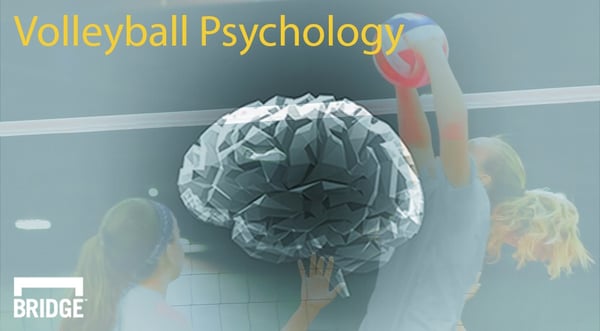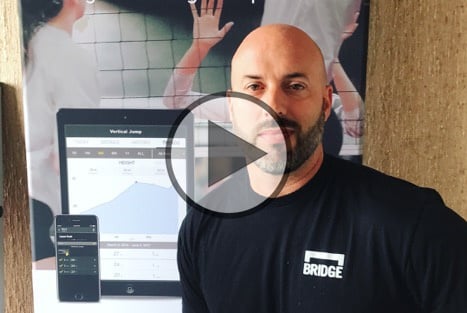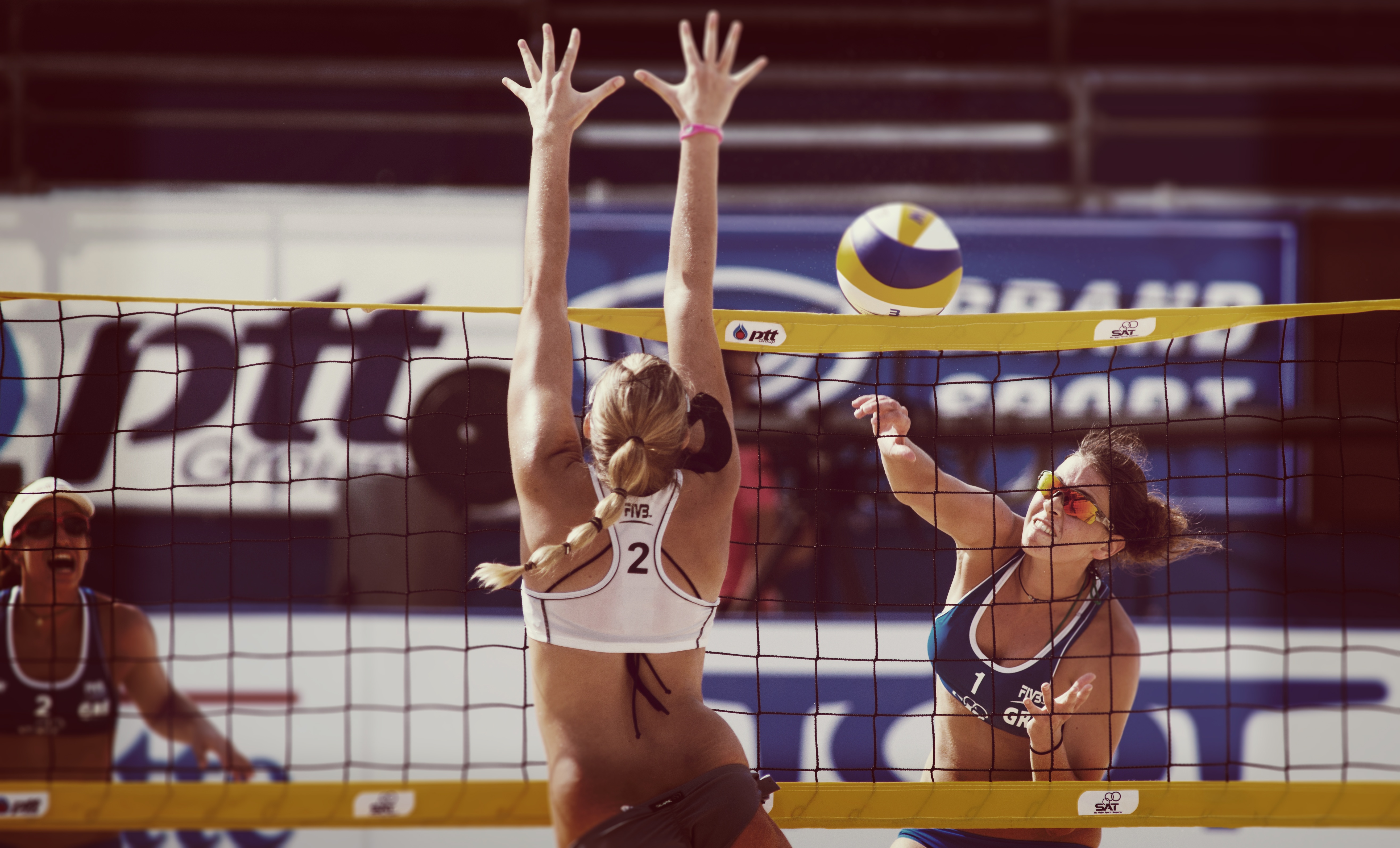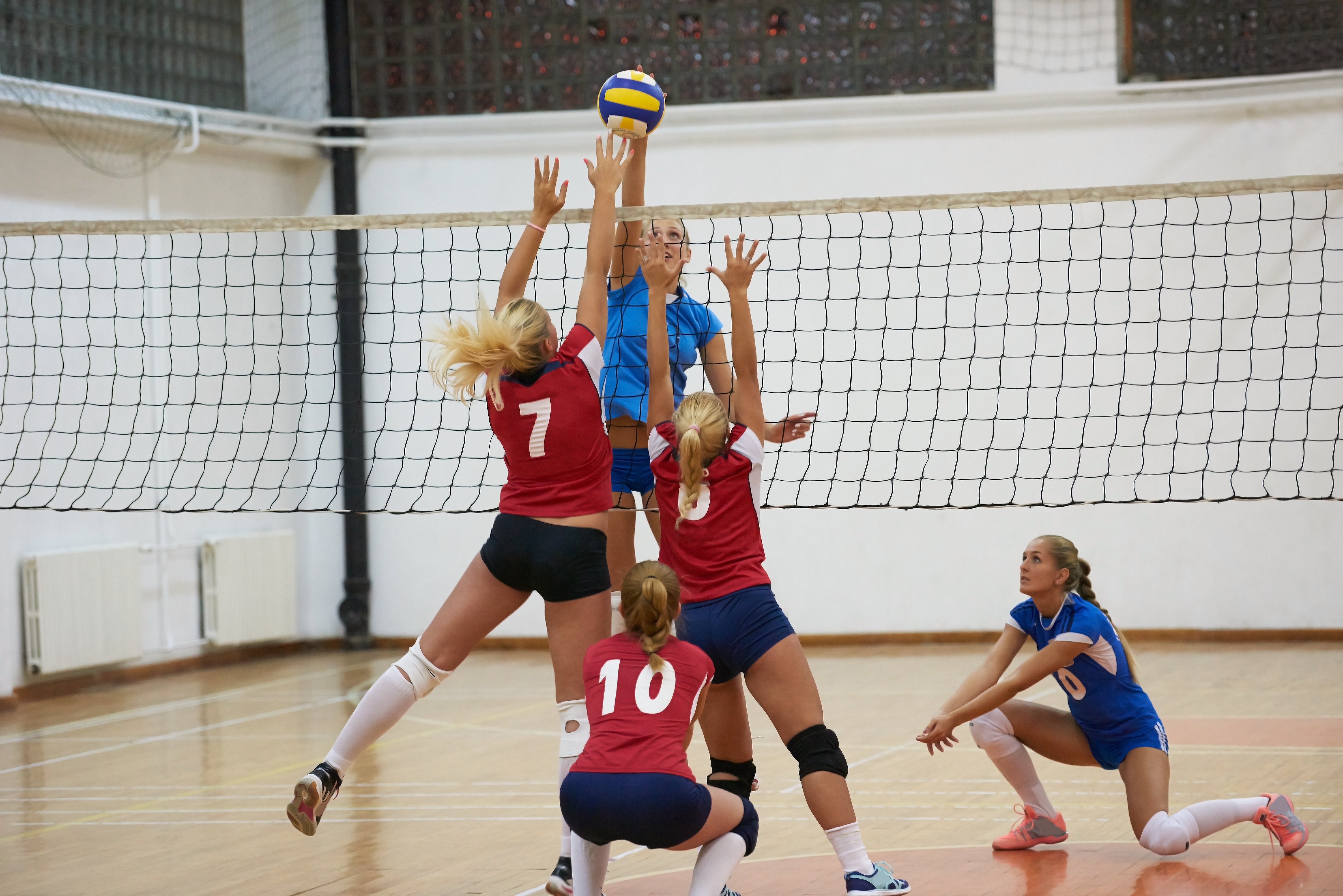Volleyball Psychology: 5 Mental Steps to Tournament Success

It’s getting close to that time of the season when teams have put in the hours building their strength and conditioning, perfecting skills sets, and running offensive and defensive schemes. The goal is to translate all that practice into tournament-winning volleyball that is not compromised by nerves or mental errors. Coaches should incorporate these simple yet effective mental skills and training principles.
Mission Statement
Develop a solid mission statement or belief system. This statement defines who your team is and how you play winning volleyball. Each team is unique in their style of play. Having this statement is a reminder to your team who you are before, during and after games and can help a team unify and reset through the tough moments.
Use keywords to create one-word actions statements that set the tone before a point, a game, or reset a negative play. Take some time out of your practice and have all your players write down 2-3 words that capture their most important values in playing volleyball or words they believe are important in having a winning season. Collect their words and then begin to create a brief statement that encapsulates most of what you believe as a coach and what your players marked down. Coming up with 3 different options and having the team pick the one they like best will further build unification and help create buy-in.
Thematic Word and Player Warm-up
Create a word that captures the essence of how you might be approaching your next tournament. For example: “Resiliency.” This could be the word that starts you off, that resets your team, is repeated in your timeouts, or is spoken between huddle-up plays between points. Make it meaningful to how you want to approach this tournament. You may even have the players right this word on their socks, wrist band, or on the bottom of their shoes.
Then, have your players create their own 30-second mental warm-up routine. This creates a sense of individuation, team cohesion, and installs loose, happy, fun vibes before the pressure of the game. Your athletes can do this right before or after their dynamic warmup.
Visualization/Video
Research shows that incorporating imagery and visualization to help prescreen the moment can significantly reduce pregame nerves by placing your team in the moment before even stepping onto the court. It is recommended to have someone trained in visualization to help run your team through a visualization exercise, but it does not hurt to try it yourself. The main goal is to have your players relax by starting with some diaphragmatic breathing exercises.
Then, incorporate the 6 senses to envision tournament day using touch, smell, hearing, taste, sight, and lastly, your emotional/feeling sense. Envision the court, the audience, the smell of the gym, the feel of the temperature and the crowd noise in order to have your players arrive at a confident state: poised, ready, relaxed and excited to play. This should take between 3-6 minutes, depending upon the sophistication and age of the players.
Highlight Reel
If incorporating visualization is not accessible or too advanced, you may want to consider creating a 2-3 minute video. Today’s athletes love technology and are good at it. It would not be hard to have the players create this video. The purpose here is to create a highlight reel with top plays. You can film practice or games and then edit to create a series of top plays including, digs, hits, blocks, and so forth. Have the players pick some music to go along with the video.
This process is a double bonus because, again, you are creating team cohesion and a pregame motivational video that will build confidence prior to playing. All players can watch this video the day of the tournament or the night before. If watching it together on a TV is not available, you can upload the video and players can watch it on their phones. Maybe you even edit your mantra or thematic statement into the video. Make it fun!
Clearly Written Agenda
Most players have high levels of stress and nerves playing in these big tournaments, so be sure to have everything laid out clearly. Be clear on times of play, warm-up routines, where to be, and when to be there. Too often, teams come in ill-prepared or rushed because the agenda is not clearly and specifically stated. This usually causes undo stress, even panic prior to stepping on the court and often results in teams coming out flat, unsure or too stressed. Take advantage of the messaging tools within the BridgeAthletic platform to send a message to each member of your team. Here is an example:
Agenda Example:
9:00 am arrive at stadium
9:00-9:15 Suit up, meet at Court 2 for pregame discussion on game planning
9:15-9:40 Heart-rate warm-up exercise
9:40-9:55 Kinetic movement
10:00-10:15 Pregame game-plan reminders and motivation (watch 2-3 min. highlight reel)
10:25 Take the court (player drive routine: 30 seconds, chant, dance)
10:30 Game time
Recap
In order for teams to be successful during the championship season, players and coaches must create a meaningful and specific theme and mission statement to focus on for the season. Coaches should plan out pre-game routines, including dynamic and mental warmups, and post-game reviews. During a game, coaches must clearly communicate with their players to reduce any unnecessary confusion and stress throughout the season. Coaches can incorporate these simple yet effective mental skills and training principles to build a cohesive and successful program.
About the Author:
Ami is a licensed mental health clinician and specializes in sport psychology. He focuses on the whole athlete, on and off the court. He uses a full range of techniques in cognitive-behavioral, goal-oriented, and mindfulness practices to craft the whole athlete.
Exercises such as self-awareness coaching, visualization, motivational imagery, deep diaphragmatic breathing and positive self-talk are key elements to his approach. His proficiency in assessment, intuition and a deep respect for the body/mind connection drive his methods. His continued participation in beach volleyball, mountain biking, skiing, hiking, surfing, and yoga keeps him connected to sports and competition.
Ami Strutin Belinoff, M.A.
atrainpeakperformance.com
astrutinbelinoff@gmail.com
About the Author

Ami is a licensed mental health clinician and specializes in sport psychology. He focuses on the whole athlete, on and off the court. He uses a full range of techniques in cognitive-behavioral, goal-oriented, and mindfulness practices to craft the whole athlete. Exercises such as self-awareness coaching, visualization, motivational imagery, deep diaphragmatic breathing and positive self-talk are key elements to his approach. His proficiency in assessment, intuition and a deep respect for the body/mind connection drive his methods. His continued participation in beach volleyball, mountain biking, skiing, hiking, surfing, and yoga keeps him connected to sports and competition.
Related Posts

The Formula for Individualized Training
With over 18 years of experience coaching youth, high school, collegiate, Olympic, and...

Beach Volleyball: 3 R’s to Keep Up With...
At this point in the season you are in full swing of your beach season. In our previous...

Increase Agility, Power, and Speed...
A large factor in achieving success in volleyball is the ability to quickly react to situations on...


